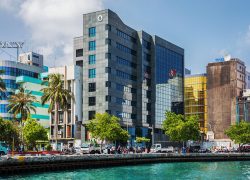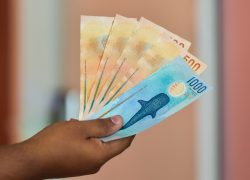Efforts to enhance fiscal discipline and recalibrate national spending priorities have begun to yield results, as the Ministry of Finance and Planning reports a notable decline in government subsidy expenditure during the first half of 2025. This development reflects the administration’s continued commitment to maintaining economic stability while strengthening public financial management.
According to the Ministry’s Weekly Fiscal Development bulletin, the government spent USD 103.78 million on subsidies over the first 26 weeks of the year, marking a 19 percent reduction compared to the USD 136.23 million spent during the same period in 2024. The report attributes this decline to prudent budgeting decisions and targeted subsidy reforms designed to optimize the use of public resources.
Despite the overall reduction, subsidies remained the largest component within the broader expenditure category of grants and contributions. Collectively, this category accounted for USD 317.82 million in the first half of 2025, down from USD 337.19 million during the same period last year.
While subsidies declined, other areas of government expenditure demonstrated varied trends. Notably, allocations to Aasandha, the country’s national health insurance scheme, increased by 9.9 percent, reaching USD 64.86 million. This underscores the government’s continued prioritization of essential healthcare services for the population. In contrast, grants issued to local councils experienced a downward adjustment, totalling USD 64.86 million in 2025 compared to USD 77.83 million in the first half of 2024.
The bulletin also highlighted an encouraging fiscal balance, with government revenues exceeding expenditures as of 17 July. Total revenue and grants reached USD 1.33 billion, surpassing the USD 1.23 billion recorded during the same period last year. This included domestic revenue and foreign aid. In comparison, total government expenditure for the period stood at USD 1.26 billion, indicating a positive net fiscal position.
The Ministry of Finance and Planning continues to play a central role in steering the economy toward a more sustainable and resilient future. Through careful expenditure management and efficient revenue collection strategies, the government is working to create an environment that supports long-term growth and financial health.
As international visitors explore investment opportunities and economic prospects in the Maldives, the nation’s improving fiscal indicators signal a strengthened economic foundation. These developments serve not only to stabilize domestic finances but also to boost investor confidence and support broader development goals—including the advancement of tourism infrastructure and services, which remain at the heart of the Maldives’ growth agenda.



 advertisment
advertisment




 advertisment
advertisment





